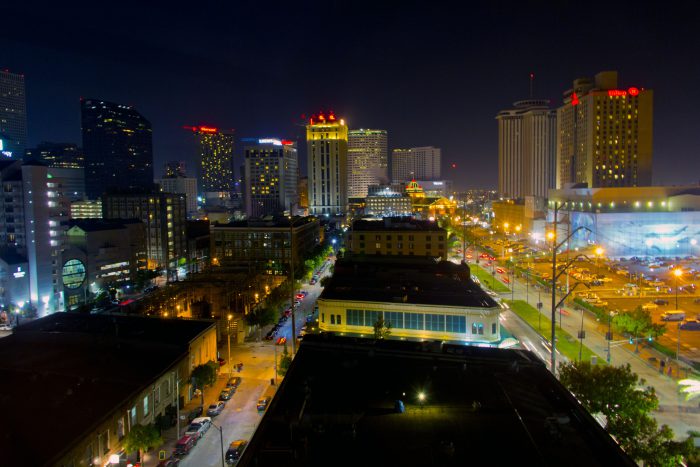
If you’re good at something, the saying goes, never do it for free.
It’s advice that The Lens has taken to heart. In 2014, The New Orleans-based local news site launched The Lens Speakers Bureau, a program created to formalize and monetize the process of getting Lens reporters to speak at local events. In exchange for a small amount of cash — usually $150 — professional, community, academic, and civic organizations can request Lens reporters to speak on some of the site’s core topics — politics, land use, schools, criminal justice, city government, and the environment.
For The Lens, which launched as a nonprofit in 2009, Speakers Bureau is an extension of its mission to serve its community by both connecting with readers and explaining how it reports on big stories. “Most nonprofit newsrooms want to be engaged with their community, and this was the kind of thing that we were already doing and most of our peers already do in some way,” said Steve Beatty, the site’s publisher and CEO. “We have to get more people to know about us if we want to have more impact and build the kind of following we’re hoping for.”Beyond a community service, Speakers Bureau also represents a new revenue stream for The Lens, albeit a small one so far. The site pulled in roughly $10,000 in speaker fees last year though the program, which is “certainly not anything major,” Beatty said. On the other hand, for a small local nonprofit such as The Lens, which has an eight-person staff and a budget of just under $600,000, that revenue isn’t insignificant. “It’s not a major part of the budget, but it’s nice to know that the paper clips are paid for,” said Karen Gadbois, The Lens’ cofounder.
Speaker Bureau owes its successful first year in large part to fortuitous timing. 2015 was the 10-year anniversary of Hurricane Katrina, which changed New Orleans in ways that the city is still coming to terms with. As a result, the Lens saw a surge in requests from organizations looking for reporters who could talk about how the city has changed over the last decade.
The most sought-after Lens staffer is environment reporter Bob Marshall, a two-time Pulitzer winner who has covered the beat for 35 years. Through Speakers Bureau, Marshall has spoken at events such as Tulane University’s Environmental Summit, where he talked about the challenges facing environmental journalism, and the National Conference on Science, Policy and the Environment, where he spoke about disappearing wetlands. Those appearances helped The Lens earn $500 and $1,500, respectively. (The Lens’ environmental coverage has made the site an attractive partner for larger organizations such as ProPublica, the Center for Investigative Reporting, Slate, and The Nation, which have worked with the site over the past few years.)
Other speaking engagements are less lucrative. Appearances on local PBS programs, for example, tend to net just $50 for The Lens. But The Lens, as a mission-driven organization, rarely says no, even in those cases. “If a neighborhood group would like us to come talk and they can only offer us a few bucks, we’re not going to turn that away,” said Beatty. “Beyond the money, we’re also always thinking about the mission to be in touch with people and not to have our relationship be a one-way conversation from the ivory tower down.”
Beatty said that The Lens, like many news organizations, is not always comfortable putting a value on the content it produces and the reporters that produce it. In some ways, it’s a product of the legacy of separation between the business and editorial sides of news organizations, which shielded reporters from concerns about how much their work — and their expertise in a given area — was worth. “Reporters may brag and talk loud at the bars, but we tend to be kind of humble in valuing our work,” said Beatty.
It’s a process that The Lens has gotten better at over time. Over the last few years, Lens reporters have made regular appearances at events organized by the New Orleans Citizen Diplomacy Council. For years, The Lens held back asking for donations in exchange for reporter appearances at the events. But that changed last year. “We were working with them out of the goodness of our hearts, but when we started Speakers’ Bureau, we said, ‘Can we trouble you for a hundred bucks?’ and they said, ‘No problem.'”
This was an important moment for The Lens. “It’s important for us to put a value to this so that people will think a bit harder about what it means to support a nonprofit newsroom,” said Gadbois. As my ex-mother-in-law used to say: If you don’t ask, you don’t get.”
While The Lens concedes that Speakers Bureau may never be a major revenue stream, the site says that the very existence of the idea speaks volumes. “At the end of the day, this is also just a way for us to demonstrate to the outside world and our funders that we’re not just going to walk around and ask people for money all of the time,” said Beatty. “We’re going to experiment and do new things to raise money.”